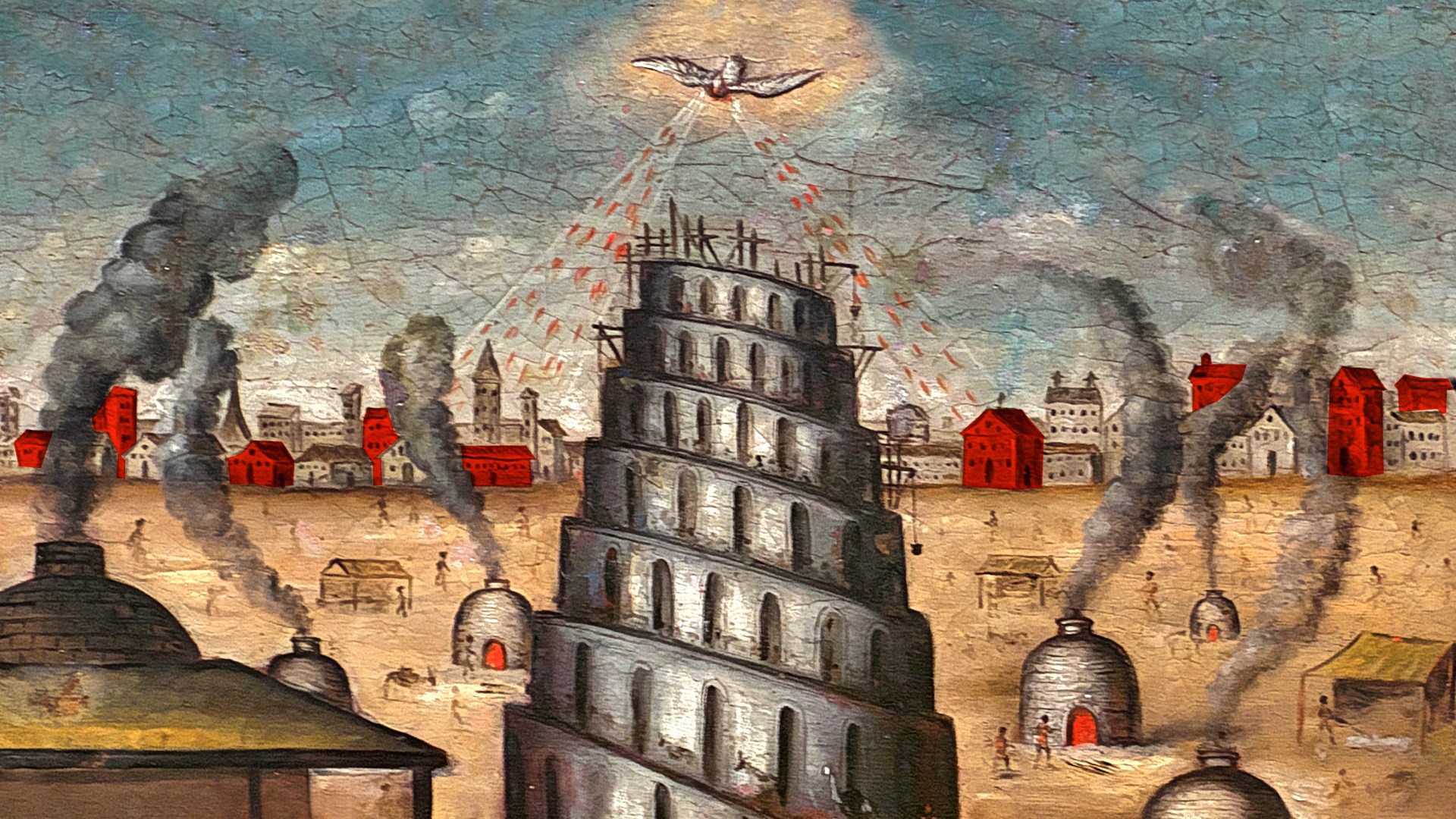Late last year I asked on Twitter, “Do we live in ancient Israel or a modern Babylon?”
Put a different way, to what extent are biblical lessons regarding life in the Holy Land normative for Christians who live as religious minorities—that is, in “unholy” lands dominated by non-Christians?
Looking back to ancient Israel, the emphasis was on purity, not evangelism—God sent Ishmael and Esau into the wilderness, told Joshua to destroy the Canaanites, and instructed Ezra to insist that the Israelites put away foreign wives. To make the Holy Land holy, God commanded a zero-tolerance policy: There shall be no abominations among you.
The Holy Land was humanity’s greatest opportunity to live in a new kind of Eden, where God chose a particular nation to become its inhabitants. He provided commandments so they would know how to act and promised them (in Deuteronomy 28 and elsewhere) that if they obeyed, all would go well.
God established ancient Israel as a model nation for the world—a perfect test case of whether good rules would cultivate a good people.
The Israelites were warned not to follow the “detestable ways” of other nations while living in the land (Deut. 18:9). But God’s rules and statutes were not just for the Israelites; they were also for any stranger that stayed in the land (Lev. 18:26, 28).
In this way, the Old Testament is highly location specific—the ancient Israelites’ charter was designed to protect the purity of the land God had given them. They were to cleanse it from defilement and then preserve it as holy.
Evangelism was not a priority. When some Israelites married foreign women, leaders did not celebrate an opportunity to evangelize the newcomers and increase the numbers of Israel. Instead, they looked on such intermarriage with horror.
The prophets were indignant when the Israelites trashed their semi-Eden. Jeremiah—the prophet whose godly fury led to our word jeremiad—wrote, “This is what the Lord says: … ‘I brought you into a fertile land to eat its fruits and rich produce. But you came and defiled my land and made my inheritance detestable” (Jer. 2:5, 7).
And yet Jeremiah had a very different tone when he spoke to Israelites living not only outside the semi-Eden but also in the anti-Eden, the city of Babylon:
This is what the Lord Almighty, the God of Israel, says to all those I carried into exile from Jerusalem to Babylon: “Build houses and settle down; plant gardens and eat what they produce. … Also, seek the peace and prosperity of the city to which I have carried you into exile. Pray to the Lord for it, because if it prospers, you too will prosper.” (Jer. 29:4–5, 7)
Other parts of the Old Testament also indicate that Israelites outside the borders of Israel should have a very different political agenda than those inside. For instance, God banned soothsayers from ancient Israel (Deut. 18:10–12), yet Daniel was appointed to oversee the enchanters, the sorcerers, and the other wise men of Babylon (Dan. 2:48).
Daniel thought and acted independently from these ungodly people, but nowhere did he indicate a plan or desire to wipe them out. As a stranger in a strange land, he had to coexist with them—which makes him a role model for us. For at least 66 years, from 605 to 539 B.C., Daniel lived and worked under Babylonian authority, always trying to serve a strange public while remaining true to God.
In the process, Daniel faced down death threats, as did three of his friends. When Nebuchadnezzar set up a 90-foot-tall image of gold and commanded all his officials to bow down and worship it, Shadrach, Meshach, and Abednego did not harangue the assembled pagans. They merely refused to bow. But that was enough to get them arrested and thrown into a fiery furnace, from which God preserved them.
The Israelites publicly tolerated differences while following God’s commands in their own lives and within their own households. Daniel prayed in his own house but did not demand public prayer or Bible reading in Babylonian academies. The books of Ezra, Nehemiah, and Esther show how other Jews living in Persia—part of an empire with 127 provinces and a vast number of ethnic groups and languages—lived peaceably under laws not their own.
In the Old Testament, all idols in the land of Israel were to be destroyed. And yet in the New Testament, the apostle Paul never tried to remove pagan altars and idols from public streets in the city of Athens (Acts 17:17–31). He and the gospel writers emphasized proclaiming the Good News of Christ at every opportunity, without calling for the imposition of biblical law.
Again, the Bible is location specific—proper action in one place was not proper in another.
We even see this in the work of Jesus. He drove the Jewish moneychangers out of the temple, the holiest place in the world, but did not drive Romans out of any other places. Israel had already become a most unholy land by A.D. 70, when Roman soldiers destroyed the temple. After that, one land was not considered holier than others.
The great tragedy of ancient Israel was that God’s people sinned in a land that of all lands should have been the least conducive to sin. If ancient Israel’s laws, given by God, did not bring about righteousness in this most hospitable of environments, how likely are holiness laws to succeed in less favorable environments?
Old Testament history teaches us not to be prideful in thinking we can create earthly utopias or even sustain the ones handed to us. The lesson is this: Sin comes from within, not from our surroundings. God taught humanity that sin crouches at our door even in the best of environments, whether the original Eden or Israel’s semi-Eden. He has shown us our desperate need for Christ and the necessity of accepting no substitutes.
As early Christians came to understand the meaning of Israel’s history, they were ready to understand the New Testament’s emphasis on evangelism. The Jewish answer to the question “Who is my neighbor?” was at the most “Your fellow Jew.” But Jesus added to that understanding by saying anyone in need is our neighbor—and by including women, Samaritans, and even enemy soldiers among God’s people.
Jesus’ embrace of others strengthened early Christians. Instructed to take the gospel into all nations and not concentrate on defending one, Christians were free to evangelize and admit into their church fellowships anyone who confessed faith in Christ, regardless of pedigree, past sins, race, or ethnicity.
Without a land to preserve but with a gospel to proclaim, the primary directive for early believers was to bring in the sheaves rather than to try enforcing biblical law.
As “Christian nationalism” now spreads across America and some other countries as well, we can learn from our predecessors: We have no holy land or temple to defend, but churches should aspire to be model cities in God’s kingdom—where, by his grace, individuals can and will be changed from the inside out.
Dr. Olasky, now affiliated with two institutes, Discovery and Acton, is a PCA elder and the author or coauthor of more than 30 books, including The Story of Abortion in America.









